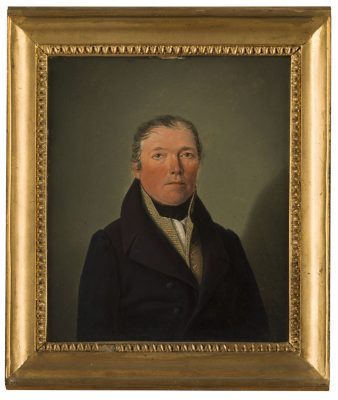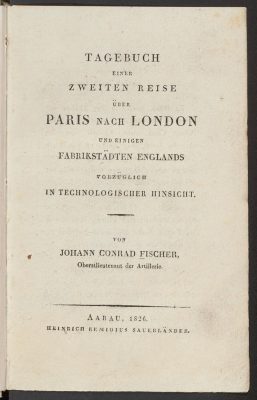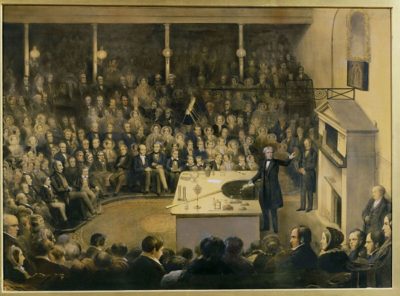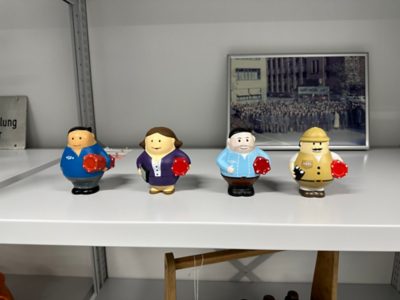Thanks to Johann Conrad Fischer, I know when the first ancestor of my smartphone was used, since when beer has been tapped like at today's festivals and how many years ago eating a sandwich in the street was still considered "indecent". More precisely, thanks to his travel journal, which he wrote during his stay in England in 1825.
Eleven years after his second trip to England, Johann Conrad Fischer took up his walking stick again in 1825 and set off for this "strange island". He did so to present his newly invented meteor steel, an alloy of steel and nickel, to English manufacturers and traders. But anyone who thinks that Fischer's journal is all about industrial-technical innovations and business relations is mistaken. Fischer, too, was just a person who liked to be surrounded by friends on Sundays and who, when he had to spend an unplanned night in another accommodation because of a storm, was happy about a "splendid ale".
With great attention to detail and comparisons (and long sentences), Johann Conrad Fischer describes what he sees and does in England, thus enabling the reader to see, through the eyes of a contemporary witness, the characteristics of the society, the (further) education system, the arts and even the culinary arts of the time. For example, the reader learns that it was customary in England at that time to eat the salad as a dessert with the cheese, which was then followed by "wine and bitter oranges". It is also amusing to read how Fischer describes the sandwich, now an indispensable part of everyday life, when he sees it for the first time: "for which buttered bread and meat were laid on top of each other in layers, which is called sandwichers in the artistic language of gastronomes. - Elsewhere it would be considered indecent to eat on the street, here it doesn't seem so the case to me." I wonder what Fischer would say about today's street food festivals and take away only cafés and restaurants?
The fact that Fischer personally knew famous engineers and inventors such as James Watt, Michael Faraday and Robert Fulton may come as a surprise to today's readers. Even more surprising, however, is his knowledge of English (as a citizen of Schaffhausen in 1825!), the importance of which he repeatedly mentions and thanks to which several doors literally opened for him. His linguistic skills often earned him points of sympathy from the English, who then often invited him straight home. But they also granted him access to non-public factory buildings and to attend chemistry lectures at the Royal Institution. With regard to the latter, he expressed concerns that probably still arise today with every student who has lectures in a foreign language. Fischer wrote: "Although I am familiar with English, I still worried that I did not fully understand him [Professor Brande] [...]". Same here, Johann Conrad, same here!




?qlt=82&ts=1698232829821&dpr=off)
